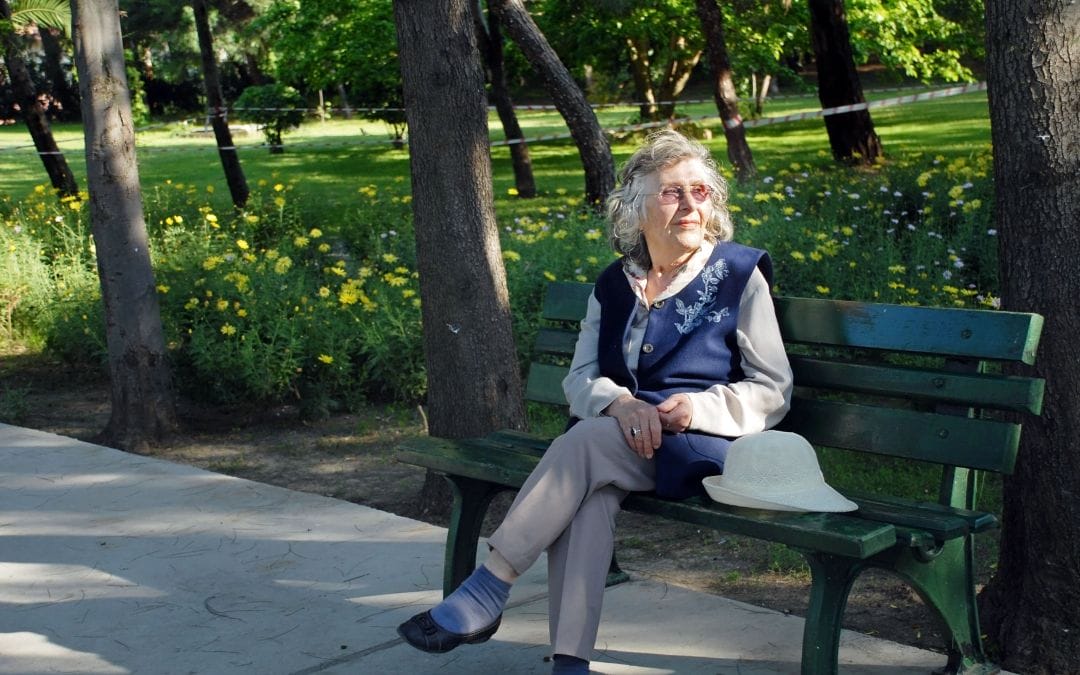According to the Parkinson’s Foundation, 10 million people worldwide live with Parkinson’s Disease (PD). In the U.S. alone, 60,000 people are diagnosed each year. If you or a loved one has PD, you understand the challenge of finding appropriate care. When researching potential options for assisted living for Parkinson’s Disease, consider the following important factors.
When to Make the Initial Move to Assisted Care
A common reason to move a PD patient to assisted care is the overwhelming strain it can put on their loved ones. Caregiver burnout is very prevalent and difficult for those taking care of PD patients. It’s a physically taxing and mentally draining job. Recurrent falls occur among 39 percent of PD patients, with an average of 20 falls per year, according to recent studies. Because of this, caregivers are often afraid of having patients move around too much, which is the opposite of the therapy they need.
Assisted care communities employ educated and trained staff. Their care plans include awareness and interventions of potential fall hazards.
The Importance of Experienced Medical Staff
When researching options ask assisted living communities if their staff has specific experience with the disease and the progression. PD patients should be around experts who are familiar with the varying symptoms of the disease so that physicians can be aware of any subtle changes. Medication also needs to be evaluated and adjusted continuously to offset symptoms or progression.
Many patients are misdiagnosed with PD when they actually have Lewy body dementia. Because they both present similar symptoms, it’s very easy to do. An assisted living community that has memory care specialists and experts on hand can catch and monitor changing symptoms. It can be difficult for a caregiver to notice or a physician who only sees a patient a few times per year. Proper diagnosis is incredibly important because medication prescribed for PD can complicate and worsen Lewy body dementia.
Search for a Community of Support
Support is invaluable when developing a safe community around PD patients. It’s jarring enough to leave the trusted and familiar environment of their home to move into assisted living. Focus on finding your loved ones a new home where they feel welcome and understood. Ask potential communities if they have other residents with PD; this can go a long way to foster a sense of community.
Know That Mobility Matters
When dealing with PD, the more you move, the better. Exercise provides a neuroprotective effect, where physical activity can slow the impact of the disease, according to the University of Wisconsin Health.
Look for an assisted living community with routine mobility exercises and consistent physical activity programs. Consider the amount of movement the patient will get on a regular basis. Something as simple as getting up and slowly walking to the dining area is beneficial.
At Vineyard Bluffton, it is part of the daily routine to involve residents in active exercise and movement. It’s also important to note that those who stay in a social setting tend to be more physically active because they are participating with their peers in an active lifestyle.
When to Transition to Skilled Nursing Facilities
There are five universal stages on the Hoehn or Yahr scale. When someone is a 4 or 5, they have typically progressed beyond the care of an assisted living facility and probably need a skilled nursing facility and constant care. Unfortunately, those with PD also often have dementia, and they might start experiencing hallucinations or erratic behavior. At that point, they need to be evaluated to be sure they don’t pose a threat to themselves or others.
Find the Best Options for Assisted Living for Parkinson’s Disease
When researching potential options for assisted living, look for a community with a multidisciplinary treatment approach. Living spaces that get patients out of their rooms and moving around can offset the progression. Skilled staff can keep trained eyes on residents and provide quick medical attention. A sense of community will also go a long way to normalize the disease and make your loved ones feel at home.
Know that even in the later stages, there’s still potential for a patient to come into a community of encouragement and specialized care and see incredible results.
At Vineyard Bluffton, the professional staff perform assessments on a regular basis as well as watch for any change in conditions to assist in monitoring and making sure that those with Parkinsons Disease get the care that they need.

